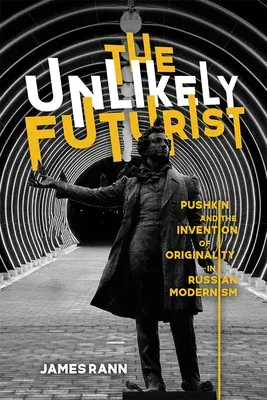James Rann
(Author)The Unlikely Futurist: Pushkin and the Invention of Originality in Russian ModernismHardcover, 7 July 2020

Qty
1
Turbo
Ships in 2 - 3 days
In Stock
Free Delivery
Cash on Delivery
15 Days
Free Returns
Secure Checkout

Part of Series
Publications of the Wisconsin Center for Pushkin Studies
Print Length
280 pages
Language
English
Publisher
University of Wisconsin Press
Date Published
7 Jul 2020
ISBN-10
0299328104
ISBN-13
9780299328108
Description
Product Details
Author:
Book Format:
Hardcover
Country of Origin:
US
Date Published:
7 July 2020
Dimensions:
22.86 x
15.24 x
2.06 cm
Genre:
Russian
ISBN-10:
0299328104
ISBN-13:
9780299328108
Language:
English
Pages:
280
Publisher:
Weight:
648.64 gm